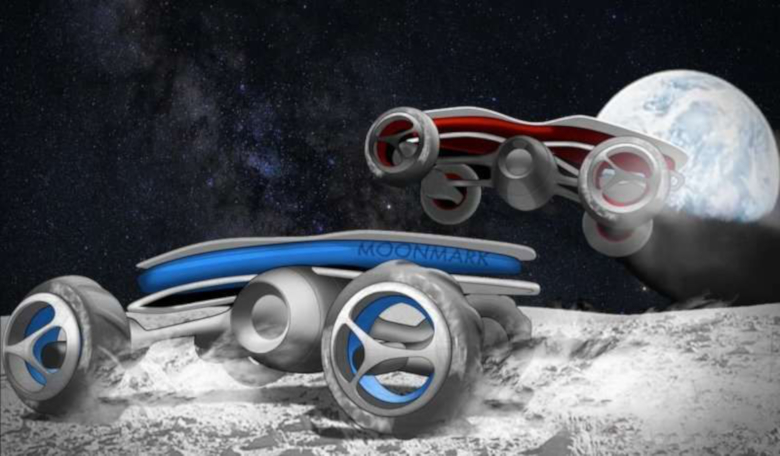The Aerospace technology company Lunar Outpost, is partnering with Moon Mark, to deploy two racing rovers to the lunar surface in 2021, complete with high-resolution video for viewing back on Earth.
Moon Mark, a Nevada-based entertainment and education company, is eyeing a flight on board the Intuitive Machines Nova-C lander, which is due to launch atop a SpaceX Falcon 9 rocket next year, as a means to deploy the rovers.
Based in Colorado, Lunar Outpost says it will utilise its extensive experience gained from the development of its commercial resource-prospecting lunar rover – the Mobile Autonomous Prospecting Platform (MAPP) – to build two of the “fastest vehicles ever landed on the lunar surface”.
Once on the lunar surface, the racers will do battle on a pre-determined racetrack and relay high-definition footage of the event back to Earth, say Lunar Outpost.
“No, this isn’t the premise of a science fiction movie. It’s happening. Soon,” say the company on their website.
The final design of the moon racers will be selected from proposals submitted by a winning team of school children, who have been participating in a world-wide competition sponsored by Moon Mark.
After battling it out for eight weeks, teams have been whittled down to a final six (each with five team members) and from these remaining groups, two will be selected to race on the moon.
“Moon Mark’s mission of getting young people involved in aerospace and working toward utilising space for the betterment of humanity is something that resonates with us,” said Justin Cyrus, Co-Founder and CEO of Lunar Outpost in a press release last month. “We look forward to enabling racers on the Moon and being a part of the journey to bring space to the world.”
Earlier this month Lunar Outpost became one of four firms awarded contracts by NASA to retrieve material from the lunar surface for the US space agency.
Nasa is paying the Colorado-based company $1 (£0.74), a sum proposed by Lunar Outpost, to collect a small sample of lunar regolith, which the company will collect with its Mobile Autonomous Prospecting Platform, or MAPP. The samples will then be sold directly to NASA in a first of its kind transaction.
Other winning bidders, Ispace Japan and Europe are charging NASA $5,000 for collecting moon samples, whereas Masten Space Systems of California is asking for $15,000.
"The companies will collect the samples and then provide us with visual evidence and other data that they've been collected," a spokesman for Nasa said in a statement.
Ownership of the material will transfer to the space agency after the contract has been fulfilled.











